French Bishops Ask Pope for Help to Fight Abuses
Closing Address at Plenary Assembly of French Episcopate
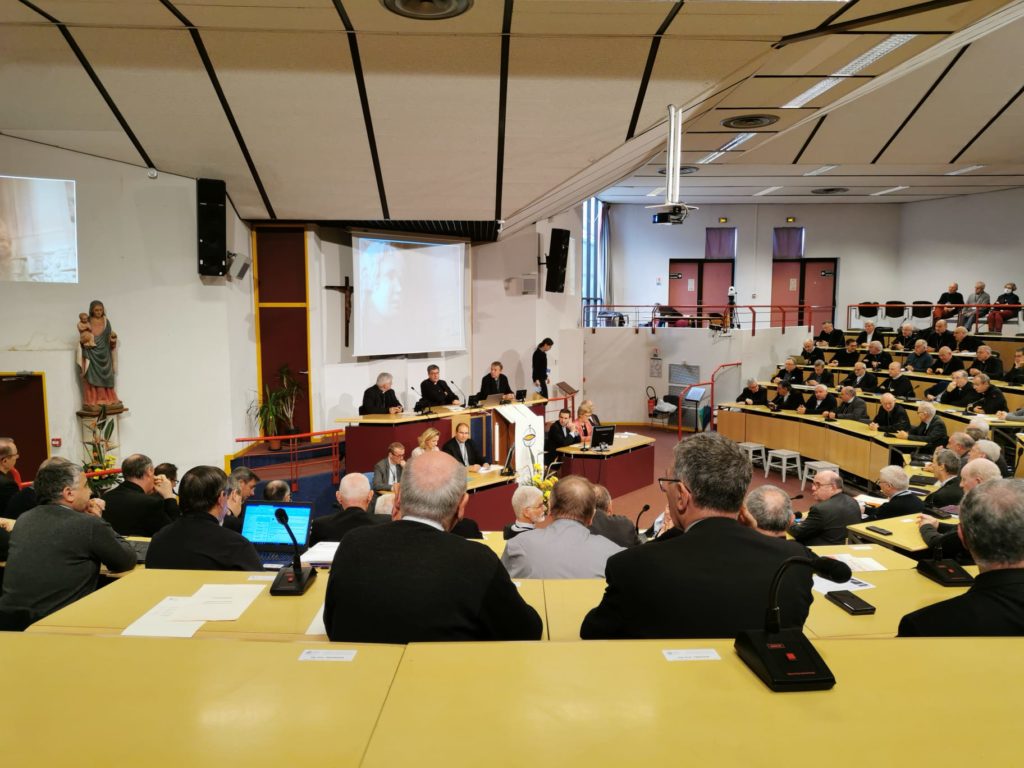
“We decided together to ask the Pope, as we are appointed by him, to come to our aid, sending someone he trusts to examine with us in the way we have treated and treat persons that are victims and their aggressors,” state the French Bishops, given the sexual abuses in the country.
In the closing address of the Plenary Assembly of the Conference of Bishops of France (CEF), at the end of the Plenary Assembly of Lourdes, Monsignor Eric de Moulins-Beaufort, Archbishop of Rheims and President of the Episcopate, pointed out the path that the Church of France desires and must undertake, in a proximate future, to address the scandal of sexual abuses on the part of clergy.
Path of Reparation
In fact, this meeting of the Prelates was dedicated to the recent Report of the Independent Commission on Sexual Abuses in the Church (CIASE), whose data revealed the breadth of the same: more than 330,000 cases of violence against minors since the ‘50s to the present.
“We have acknowledged our institutional responsibility and we have decided to undertake a path of reparation, opening the possibility of mediation and compensation to the victims,” state the members of the Episcopate. “The whole of resolutions on which we have voted is an ample program of renewal of our government practices at the level of the dioceses and at the level of the Church in France. After re-elaborating them somewhat, we will transmit to the Holy Father CIASE’s recommendations, which concern the universal Church,” they add.
In this connection, they ask for the Holy Father’s intervention and they have decided to “create a series of working groups to reflect on the different aspects of our diocesan or national government and to offer proposals.” These groups “will be directed by a layman, made up of members of the People of God of different states of life. Under the direction of a Coordinator, they will establish the order of the day and will inform about their work to the Plenary Assemblies.”
The Evil Is Closer Than It Seems
Thanks to CIASE, we see that this is a terrifying constant, that strong relationships, humanity’s structured relationships can always be perverted and they are so in a proportion that no one can say is negligible. Evil is always closer to our souls than it seems.” They also point out that “the grace of Ordination does not ensure a stable character, perfect honesty, notable delicacy of heart; it doesn’t even preserve one from the destructive and dominant demons that can dwell in a soul.”
Among other reasons, this disposition has been undertaken thinking of the victims, “thinking of each and all of them, of each and all of the children, small boys, small girls, adolescents, who cry secretly in the depth of their souls and will do so up to the last day of their adult life.”
Moreover, the Episcopate’s President reminded: “We became priests to take humbly some of Christ’s consolation, to offer much of God’s closeness, and certainly not for men and women to weep over our parochial functioning.”
Pope Francis’ Stimulus
Hence, the moment has arrived for a profound reform of the institution: “From the first consideration of the victims, we have been given the liberty to open the work on our ecclesiastical or ecclesial functioning in a broad way,” stimulated by “a great impulse of the Holy Father during our ad Limina visits, an impulse reinforced by our celebrations at the tomb of the Apostles, who placed us again at the center of our mission.”
“We are directed toward an impoverishment of our Church. In more than one sense, we desire it, we hope for it,” said CEF’s President. “It has served us to experience that it is, undoubtedly, worthwhile to be humiliated, impoverished, diminished if this can help us to meet better with the poor, the excluded, the scorned, given that the Lord we wish to follow came first for them.”
Be Attentive and Lucid
In his address, he also acknowledged that this decision “is a liberation for all of us. It liberates us to be able to show that our Church, the Church to which we belong and which we want to serve, cannot be an institution concerned with herself, immersed in self-glorification.” At the same time, there is talk of “crossing different points of view, of receiving the contribution of a feminine perspective, of seeking ways to consult the People of God, all this seems to us to be full of promises to progress in mutual benevolence, to grow in attention to each person in all the dimensions of his being.”
Moreover, he called to “be attentive, to be lucid, and not let ourselves be deceived by the words we use,” clarifying that true paternity “can never consist of one person making another their own or treat him as such, or that a person regard the other as inferior, whereas the correct paternal function leads necessarily to adult age and to emancipation”
Judicial Sector
Moreover, in regard to the judicial sector, the message states that the cooperation protocols between the dioceses and the Public Prosecutor’s office already exist in Paris, for example, they should be generalized, considering that “we have everything to gain if we conclude the protocols with the Public Prosecutors. We have everything to gain if we trust the justice and police services of our country,” given that the Bishops are not “equipped to be investigators, or public prosecutors or examining judges.”
“In a more general way, God’s forgiveness must not serve as an excuse for those that have committed a crime or offense to be able to escape human justice. On the contrary, this forgiveness must strengthen the culpable so that he is willing to give an account of his acts and to face the consequences. Monsignor assures them that their most profound dignity will be reinforced by this test of truth,” reads the text.
Synodal Process
Monsignor Moulins-Beaufort referred also to the synodal process in which the Church, by the Pope’s desire, is immersed, “that it begins at a moment in which our Church in France has received the commotion of the CIASE Report and that she is obliged to look at her dark side seems to us to be providential.”
“We rejoice to be able to progress in this great work in a synodal way, trusting in the sense of faith, the famous sensus fidei, of the lay faithful, the priests and the deacons, the consecrated men and women. It’s not about putting forth ideas, about carrying out a program, but about discerning together after having listened together to what God is saying to us, after having listened to one another mutually with patience and accepting that all expressions count,” he affirmed in this connection.
Translation by Virginia M. Forrester
Related
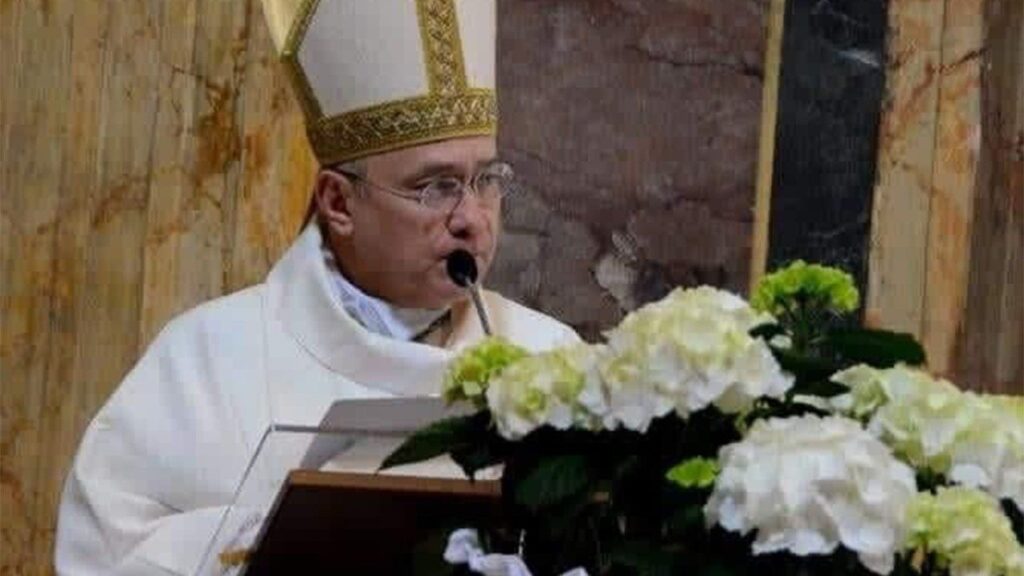
“Let us pray to the Virgin to protect the Church, the Pope, this nation and the entire world”
Exaudi Staff
15 July, 2024
5 min
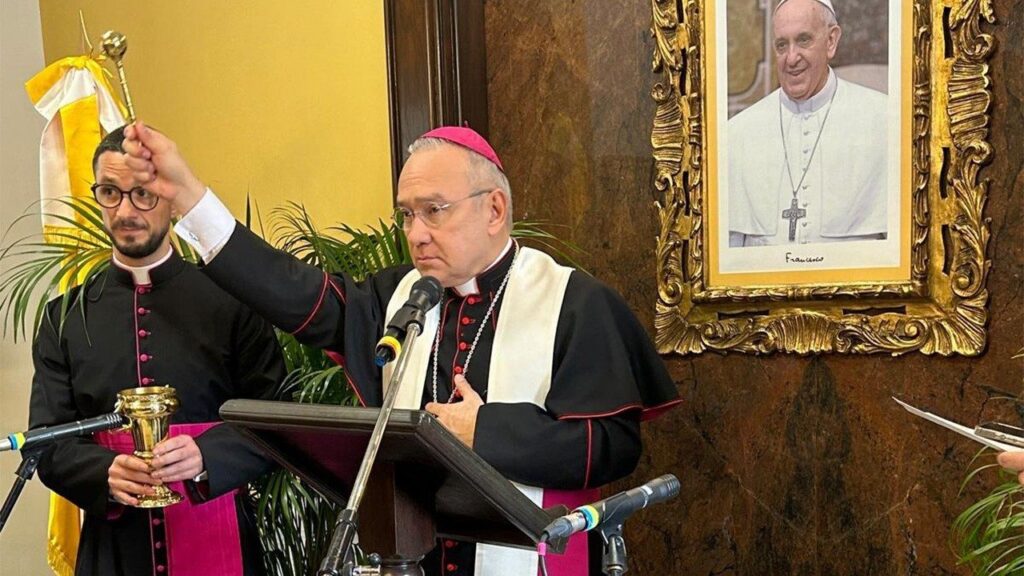
Spiritual closeness of Pope Francis on the occasion of the reopening of the Pontifical Representation in Honduras
Exaudi Staff
14 July, 2024
4 min
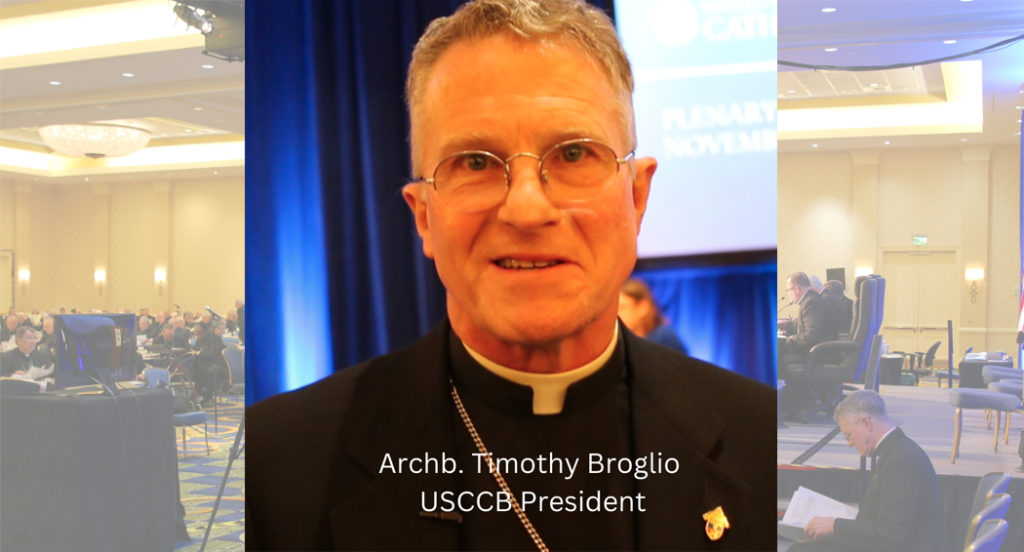
The Bishops of the United States renewed authorities: The new president is Archbishop Timothy Broglio
Enrique Soros
17 November, 2022
4 min
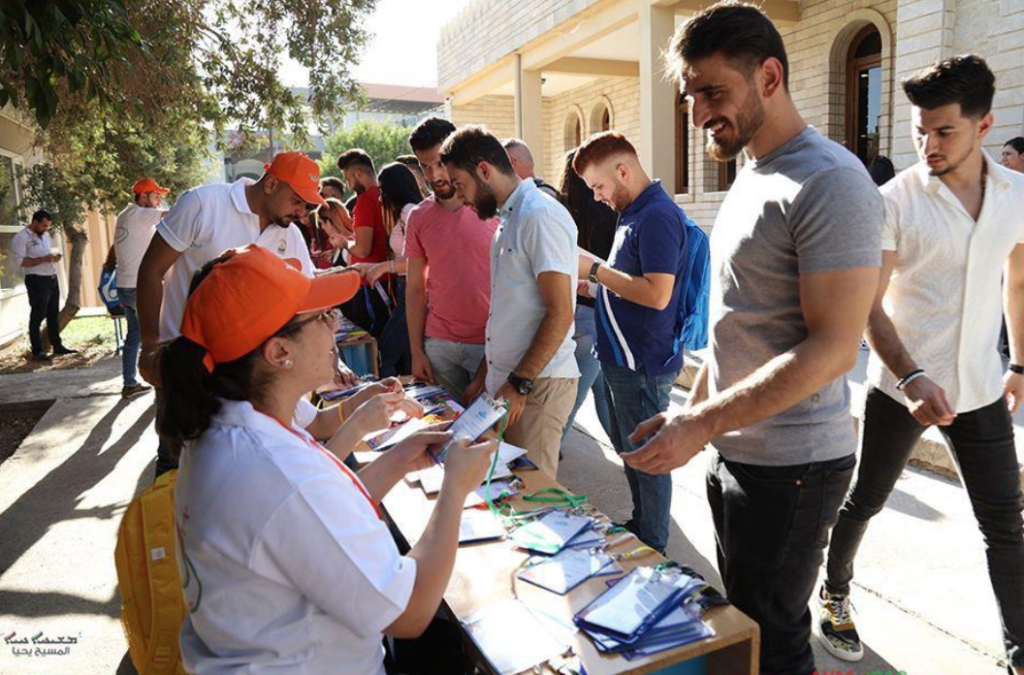
Iraq: Gathering the youth in hope
Ayuda a la Iglesia Necesitada
06 September, 2022
2 min
 (EN)
(EN)
 (ES)
(ES)
 (IT)
(IT)

